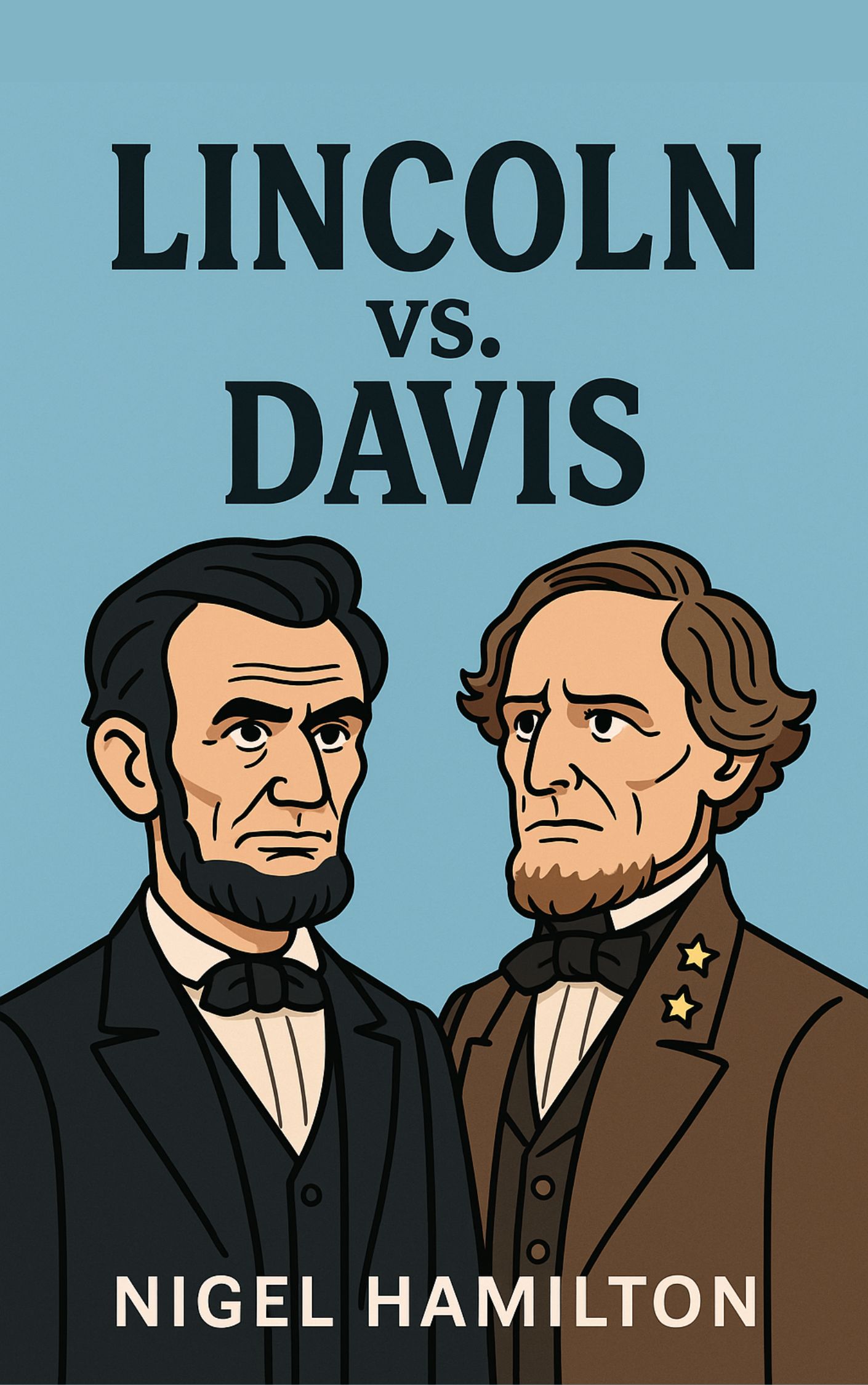Description
In early 1861, two very different men took leadership of a divided America. Abraham Lincoln, a self-taught lawyer from Illinois, became president of the United States, determined to preserve the Union. Jefferson Davis, an experienced soldier from Mississippi, became president of the Confederate States, fighting to defend the South’s independence and its system of slavery. Both were born in Kentucky, close in age, yet their paths to power and their approaches to leadership were worlds apart.
Lincoln began his presidency facing death threats and a fractured nation. Though personally against slavery’s spread, he tried to avoid the issue at first, focusing on keeping the Union together. Davis, meanwhile, reluctantly led the Confederacy but embraced the role as the South’s military figurehead. He believed secession followed the spirit of the American Revolution, but he struggled to inspire the same unity Lincoln could rally in the North.
The crisis came to a head at Fort Sumter. Lincoln decided to send supplies rather than abandon the fort, a move Davis saw as provocation. Confederate forces attacked on April 12, 1861, forcing the Union to surrender. The assault united the North, and Lincoln called for 75,000 volunteers to put down the rebellion. This in turn pushed Virginia and other states to join the Confederacy, strengthening the South but also stretching its defenses.
From the start, Davis leaned on his military background to build an organized army. Lincoln, with no such experience, depended heavily on his generals. His first major test came at the Battle of Bull Run in July 1861, where the Union suffered a humiliating defeat. For Davis, it was a morale boost; for Lincoln, a hard lesson in war’s realities.
As the months passed, both men faced frustrations. In Missouri, Union General John Frémont freed enslaved people owned by Confederate supporters without Lincoln’s approval. Lincoln, worried about alienating border states, ordered the decision reversed. Davis, under pressure from Southern leaders to attack Washington, resisted, believing a defensive posture was better for their political image abroad.
Lincoln’s biggest problem soon became his top general, George McClellan. Confident but slow to act, McClellan constantly delayed attacks, claiming he needed more troops. In early 1862, Lincoln ordered a coordinated offensive, but McClellan ignored it, launching his own complex Peninsula Campaign toward Richmond. The Union moved a massive army into Virginia, but Confederate generals used clever deception to stall them. Eventually, McClellan’s hesitations and Lee’s aggressive counterattacks forced the Union into retreat.
By mid-1862, the war had reached a stalemate. Then General Robert E. Lee convinced Davis to invade the North, hoping to pressure Washington into peace talks and inspire Maryland to join the South. The gamble failed. At the Battle of Antietam in September 1862, McClellan missed chances to crush Lee’s forces, but the Confederate retreat gave Lincoln an opening. He announced the Emancipation Proclamation, declaring that all enslaved people in rebel states would be free starting January 1, 1863.
This was a turning point. The war was no longer just about preserving the Union—it became a moral fight against slavery. The decision discouraged European powers from supporting the Confederacy, isolating Davis diplomatically. Still, reactions were mixed at home. Some in the North welcomed the change, while others feared it would prolong the war.
Davis, for his part, failed to adapt. He could have proposed gradual emancipation to win foreign sympathy, but he refused to compromise on the South’s core principles. His focus remained on military victories, yet the Confederacy’s resources were dwindling and the blockade was choking Southern trade.
In the end, both men’s weaknesses shaped the war’s course. Lincoln often hesitated and struggled to find effective generals, yet his political instincts allowed him to seize the right moment for bold action. Davis’s rigid thinking and overreliance on military solutions left him unable to match Lincoln’s adaptability.
By redefining the Union’s cause as both a fight for unity and for freedom, Lincoln not only shifted the war’s momentum but also reshaped America’s identity. Davis’s inability to counter this change marked the slow decline of the Confederacy. The war’s outcome would ultimately lead to the preservation of the Union and the end of slavery, setting the stage for a new chapter in the nation’s history.





